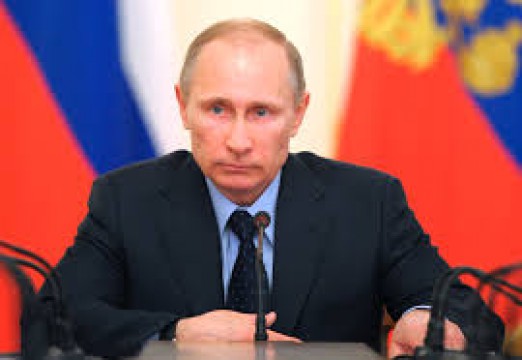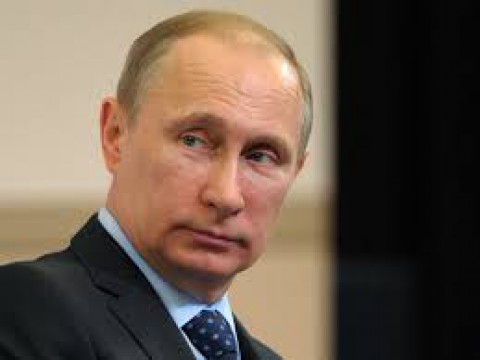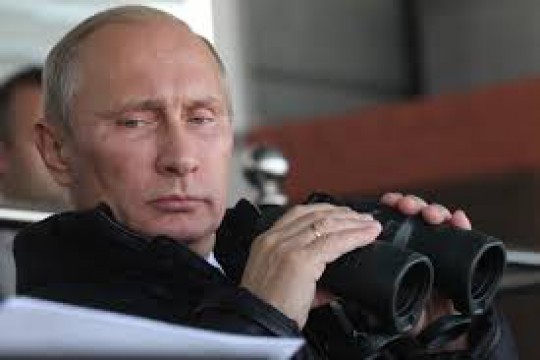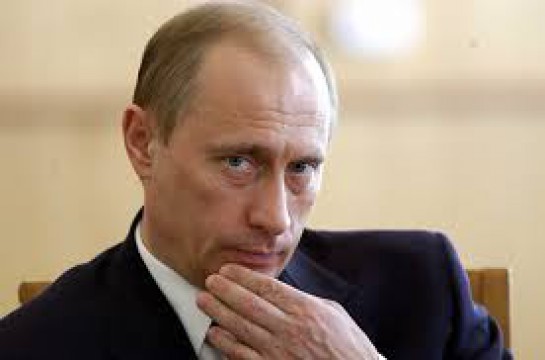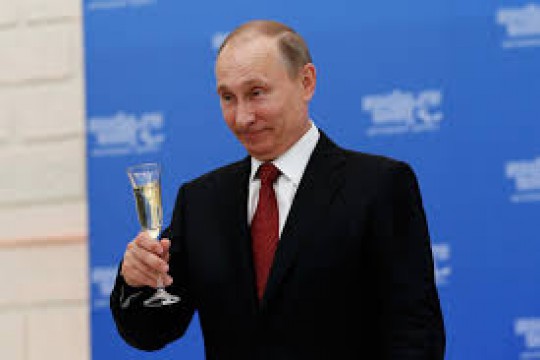PERSON: Vladimir Putin
Employer
Russian Federation
Position
President
Biography
Vladimir Vladimirovich Putin (born 7 October 1952) is a Russian politician who has been the president of Russia since May 7, 2012. Putin previously served as president from 2000 to 2008, and as prime minister of Russia from 1999 to 2000 and again from 2008 to 2012. Putin was also previously the chairman of the United Russia political party.
For 16 years Putin was an officer in the KGB, rising to the rank of lieutenant colonel, before he retired to enter politics in his native Saint Petersburg in 1991. He moved to Moscow in 1996 and joined President Boris Yeltsin’s administration where he rose quickly, becoming acting president on December 31, 1999 when Yeltsin resigned unexpectedly. Putin won the subsequent 2000 presidential election and was re-elected in 2004. Because of constitutionally mandated term limits, Putin was ineligible to run for a third consecutive presidential term in 2008. Dmitry Medvedev won the 2008 presidential election and appointed Putin as prime minister, beginning a period of so-called “tandemocracy.” In September 2011, following a change in the law, Putin announced that he would seek a third, non-consecutive term as president in the 2012 presidential election, an announcement which led to large-scale protests in many Russian cities. He won the election in March 2012 and is serving an increased, six-year term.
Putin has been credited for overseeing a return of political stability and economic progress to Russia, ending the crisis of the 1990s. During Putin’s first premiership and presidency (1999–2008), real incomes increased by a factor of 2.5, real wages more than tripled; unemployment and poverty more than halved and the Russians’ self-assessed life satisfaction rose significantly. Putin’s first presidency was marked by high economic growth: the Russian economy grew for eight straight years, seeing GDP increase by 72% in PPP (sixfold in nominal). These achievements have been ascribed by analysts to good macroeconomic management, important fiscal reforms, increasing capital inflows, access to low-cost external financing, and a five-fold increase in the price of oil and gas which constitute the majority of Russian exports.
As Russia’s president, Putin passed into law a flat income tax of 13%, a reduced profits tax, and new land and legal codes. As prime minister, Putin oversaw large scale military and police reform. His energy policy has affirmed Russia’s position as an energy superpower. Putin supported high-tech industries such as the nuclear and defence industries. A rise in foreign investment contributed to a boom in such sectors as the automotive industry.
In Russia, Putin’s leadership enjoyed considerable popularity in the beginning, with generally high approval ratings decreasing since 2008. However, many of his actions have been characterised by the domestic opposition as undemocratic. Western observers and organisations have also voiced criticism of Putin’s leadership. The 2011 Democracy Index stated that Russia has been in “a long process of regression culminated in a move from a hybrid to an authoritarian regime” under Putin, and American diplomatic cables leaked by WikiLeaks allege that Russia has become a “virtual mafia state” due to systematic corruption in Putin’s governance. Some critics describe him as a dictator, allegations which Putin adamantly denies. Putin publicly projects an adventurous, macho image via taking part in unusual or dangerous activities; some of these publicity stunts have occasionally been criticised. A keen practitioner of martial arts, Putin has played a major role in the development of sport in Russia, notably, helping Sochi to win the bid for the 2014 Winter Olympics.
— Wikipedia
For 16 years Putin was an officer in the KGB, rising to the rank of lieutenant colonel, before he retired to enter politics in his native Saint Petersburg in 1991. He moved to Moscow in 1996 and joined President Boris Yeltsin’s administration where he rose quickly, becoming acting president on December 31, 1999 when Yeltsin resigned unexpectedly. Putin won the subsequent 2000 presidential election and was re-elected in 2004. Because of constitutionally mandated term limits, Putin was ineligible to run for a third consecutive presidential term in 2008. Dmitry Medvedev won the 2008 presidential election and appointed Putin as prime minister, beginning a period of so-called “tandemocracy.” In September 2011, following a change in the law, Putin announced that he would seek a third, non-consecutive term as president in the 2012 presidential election, an announcement which led to large-scale protests in many Russian cities. He won the election in March 2012 and is serving an increased, six-year term.
Putin has been credited for overseeing a return of political stability and economic progress to Russia, ending the crisis of the 1990s. During Putin’s first premiership and presidency (1999–2008), real incomes increased by a factor of 2.5, real wages more than tripled; unemployment and poverty more than halved and the Russians’ self-assessed life satisfaction rose significantly. Putin’s first presidency was marked by high economic growth: the Russian economy grew for eight straight years, seeing GDP increase by 72% in PPP (sixfold in nominal). These achievements have been ascribed by analysts to good macroeconomic management, important fiscal reforms, increasing capital inflows, access to low-cost external financing, and a five-fold increase in the price of oil and gas which constitute the majority of Russian exports.
As Russia’s president, Putin passed into law a flat income tax of 13%, a reduced profits tax, and new land and legal codes. As prime minister, Putin oversaw large scale military and police reform. His energy policy has affirmed Russia’s position as an energy superpower. Putin supported high-tech industries such as the nuclear and defence industries. A rise in foreign investment contributed to a boom in such sectors as the automotive industry.
In Russia, Putin’s leadership enjoyed considerable popularity in the beginning, with generally high approval ratings decreasing since 2008. However, many of his actions have been characterised by the domestic opposition as undemocratic. Western observers and organisations have also voiced criticism of Putin’s leadership. The 2011 Democracy Index stated that Russia has been in “a long process of regression culminated in a move from a hybrid to an authoritarian regime” under Putin, and American diplomatic cables leaked by WikiLeaks allege that Russia has become a “virtual mafia state” due to systematic corruption in Putin’s governance. Some critics describe him as a dictator, allegations which Putin adamantly denies. Putin publicly projects an adventurous, macho image via taking part in unusual or dangerous activities; some of these publicity stunts have occasionally been criticised. A keen practitioner of martial arts, Putin has played a major role in the development of sport in Russia, notably, helping Sochi to win the bid for the 2014 Winter Olympics.
— Wikipedia
ClipsBank
Full
Compact
NewsBase
Full
Compact
RadioBank
Full
Compact
PodBank
Full
Compact
TranscriptBank
Full
Compact
No data found

